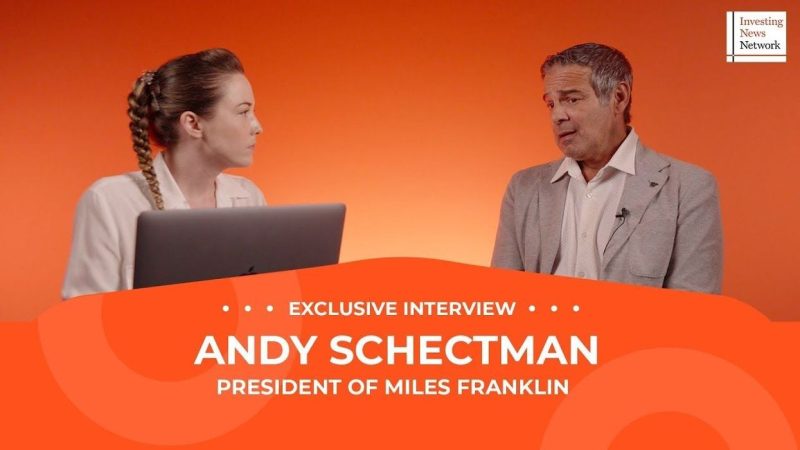In a recent interview, Andy Schectman, the CEO of Miles Franklin, shared his insights on the potential end of the dollar supremacy and the role that gold may play in the global financial landscape. Schectman believes that the current economic climate, characterized by unprecedented levels of debt and money printing, is unsustainable and could ultimately lead to a significant devaluation of the dollar.
One of the key points highlighted by Schectman is that central banks around the world have been steadily increasing their gold reserves in recent years. This trend suggests a growing lack of confidence in fiat currencies and a shift towards more stable and reliable assets like gold. Schectman argues that gold has historically served as a hedge against inflation and currency devaluation, making it an attractive option for investors looking to protect their wealth in uncertain times.
In addition to the rise in central bank gold reserves, Schectman also points to the increasing popularity of alternative currencies and digital assets as signs that the current monetary system may be approaching a breaking point. The emergence of cryptocurrencies like Bitcoin and projects like Project M:BRIDGE, which aims to create a more transparent and efficient financial system, could further erode the dominance of traditional fiat currencies.
Schectman suggests that in this shifting economic landscape, gold could play a crucial role as a unit of account for international trade. By backing digital assets with physical gold, countries could create a more stable and reliable system of exchange that is less vulnerable to the whims of central banks and governments. This could help reduce the risk of currency devaluations and trade imbalances, ultimately making the global financial system more resilient and sustainable.
Overall, Schectman’s insights point to a growing recognition among investors and policy makers that the current monetary system is facing significant challenges. By diversifying into alternative assets like gold and exploring new ways to structure the global financial system, individuals and nations alike may be better positioned to weather the storms of economic uncertainty and pave the way for a more stable and prosperous future.
